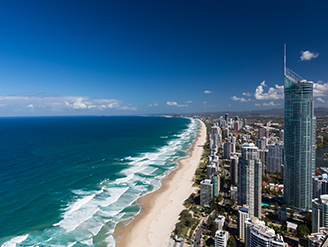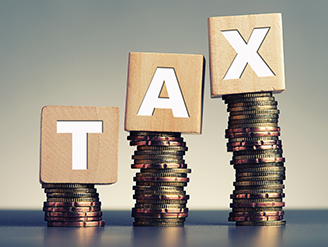Australia’s 2015 – 2016 Budget saw a Government announcement that highlighted tax changes for backpackers and those on working holidays in Australia. Previously working holiday makers in Australia, such as backpackers had enjoyed lower tax rates as they were considered residents for taxation purposes.
This Government announcement however, will see backpackers and other working holiday makers in Australia being seen as non-residents and subject to higher tax rates. With the changes planned to come into effect on 1 July 2016 many backpackers and those on working holidays in Australia are bracing themselves for the impact.

Under the present taxation system, backpackers and other working holiday makers that come to Australia, are generally treated as Australian tax residents, so long as all of the requirements are met in relation to residency are met. Essentially, backpackers and other working holiday makers that stay and work in Australia for more than 6 months are considered residents for taxation purposes.
This has major benefits for backpackers and working holiday makers who come to Australia. The current system provides the benefit of tax free earnings for earnings that are under the Tax Free Threshold and also low income tax offsets. It also provides that backpackers and other working holiday makers in Australia are taxed at the lower tax rate of 19% for all earnings under $37,000 per year by the Australian Tax Office.
The Budget announcement effectively, means that backpackers and other working holiday makers that are temporarily in Australia, even for more than 6 months, will be restricted from being identified as Australian tax residents. This will have negative impacts upon the cash flow of backpackers and other working holiday makers as they will have an effective tax rate of 32.5% of their wages up to $80,000.
The tax changes for backpackers and other working holiday makers in Australia are set to take effect from 01 July 2016. The changes in the reclassification of “resident for tax purposes”, is expected to raise an additional $540 million in taxation revenue by 2019. The additional taxation revenue is obviously the driving force behind the government policy that has led to the taxation changes.
Continue Reading
Australia’s 2015 – 2016 Budget saw a Government announcement that highlighted tax changes for backpackers and those on working holidays in Australia. Previously working holiday makers in Australia, such as backpackers had enjoyed lower tax rates as they were considered residents for taxation purposes.
This Government announcement however, will see backpackers and other working holiday makers in Australia being seen as non-residents and subject to higher tax rates. With the changes planned to come into effect on 1 July 2016 many backpackers and those on working holidays in Australia are bracing themselves for the impact.

Under the present taxation system, backpackers and other working holiday makers that come to Australia, are generally treated as Australian tax residents, so long as all of the requirements are met in relation to residency are met. Essentially, backpackers and other working holiday makers that stay and work in Australia for more than 6 months are considered residents for taxation purposes.
This has major benefits for backpackers and working holiday makers who come to Australia. The current system provides the benefit of tax free earnings for earnings that are under the Tax Free Threshold and also low income tax offsets. It also provides that backpackers and other working holiday makers in Australia are taxed at the lower tax rate of 19% for all earnings under $37,000 per year by the Australian Tax Office.
The Budget announcement effectively, means that backpackers and other working holiday makers that are temporarily in Australia, even for more than 6 months, will be restricted from being identified as Australian tax residents. This will have negative impacts upon the cash flow of backpackers and other working holiday makers as they will have an effective tax rate of 32.5% of their wages up to $80,000.
The tax changes for backpackers and other working holiday makers in Australia are set to take effect from 01 July 2016. The changes in the reclassification of “resident for tax purposes”, is expected to raise an additional $540 million in taxation revenue by 2019. The additional taxation revenue is obviously the driving force behind the government policy that has led to the taxation changes.
The Negative Impact of the Budget Announcement
Backpackers and other working holiday makers coming to Australia can expect to be financially worse off by about $2420.00 per year. The reduced cash flow availability for backpackers and other working holiday makers will also impact upon their spending capacity. Tourism industry leaders and advocates have identified that the reduced cash flow capacity will impact upon many businesses, both small and large, within the tourism and hospitality industries.
Many businesses in the tourism and hospitality industries rely upon the spending largesse of backpackers and other working holiday makers to make their businesses profitable.

With spending capacity reduced profit margins will become tighter and indeed, the costs involved for employees would also have to be reviewed to ensure ongoing business profit. This in itself is likely to lead to fewer jobs being available for backpackers and other working holidaymakers unless they are able to gain professional employment (skilled workers on the relevant visa will not be affected by the changes).
The changes will also see some backpackers and other working holiday makers choosing other destinations with lower tax rates rather than coming to Australia. With the average backpacker spending $15,500 each year, it is not hard to see that for every 1000 backpacker lost, there will be a $15 million loss to the Australian community. Not only that, but there will be a shortage of temporary workers in the form of backpackers available to fill jobs within the agricultural industries especially.
Opposition to the Backpacker Tax
The Australian Prime Minister, Mr. Malcolm Turnbull, was initially steadfast that the proposed tax changes for backpackers and other working holiday makers in Australia would go ahead. However, there has been extensive lobbying undertaken by Industry leaders as well as Federal opposition politicians and State and Territory governments throughout Australia.
The lobbying by these individuals and organisations has not only concentrated on the effects the changes would have on backpackers and other working holiday makers, but also the effects that would on flow to businesses and the Australian economy as a whole.

Australia has already seen a consistent spiral downwards for backpackers and other working holiday makers entering Australia. In the 2014 / 2015 financial year 173,491 visas were granted for temporary workers coming to Australia. This figure is a decrease of 5.4% from the 2013 / 2014 financial year.
The decreasing level of backpackers and other working holiday makers coming to Australia has already had a significant impact within the hospitality industry. The hospitality industry relies heavily on temporary workers to fill job vacancies that Australians are not willing to fill.
The proposed tax changes would undoubtedly lead to even fewer temporary workers coming to Australia – The cost of living coupled with the reduced cash flow through wages would for many make a working holiday to Australia cost prohibitive. This has led to the hospitality industry being a major vocalist in lobbying against the proposed “Backpacker Tax”.
Other vocal lobbyists have been from the agricultural industry, which also rely heavily on backpackers and other working holiday makers to fill seasonal jobs such as fruit picking and farm labouring. The NSW Farmer’s Association identified that the tax burden proposed to be placed on temporary workers, would see a significant short fall in available employees to fill seasonal and hard to fill jobs within the industry. The labour shortfall would reduce agricultural productivity and have further significant negative effects on the Australian economy.
Many industries throughout Australia that are facing a labour shortage rely on temporary workers to fill the labour gap. Without backpackers and other working holiday makers, many industries would be unable to meet the demand of the Australian public to adequately supply the goods and services required throughout Australia. These industries have advocated for the Backpacker tax to be stopped before it is implemented to prevent the on flowing ramifications reaching individual businesses.
The Governments Response to Opposition to the Backpacker Tax
While initially steadfast that the proposed Backpacker tax would go ahead, the Australian government seems to have listened to Industry leaders throughout Australia. While there has been no agreement to scrap the Backpacker tax the government has agreed to listen to industry leaders, industry groups and individuals who will be affected by the proposed Backpacker tax.

On 16 March 2016, Tourism and International Education Minister, Mr Richard Colbeck made a surprise announcement at the Tourism Australia’s Destination Australia Conference in Sydney. During the conference, Minister Colbeck, stated that “There have been a number of legitimate concerns that have been raised” in relation to the Backpacker tax. Minister Colbeck further stated, “The tax arrangements require further discussion so we don’t lose market share in this space”.
These statements by the Minister have been seen as positive news for industries throughout Australia and also the backpacker and other working holiday maker communities. Minister Colbeck further identified that Prime Minister Malcolm Turnbull had briefed him to identify a revenue-neutral solution in consultation with the Employment, Agricultural and Industry Ministers. Obviously any solutions that the Ministers identify will need Cabinet approval after submissions from the Treasurer, Mr. Scott Morrisson.
While this is a good step, in having tax advantages removed for backpackers and other working holiday makers, the question obviously remains are these government statements just government rhetoric. There is less than three months until the proposed backpacker tax comes into operation, with bureaucratic red tape and cabinet approval times, the timeframe for having the Backpacker tax removed may be too short.
In saying this, the government does have the opportunity to suspend the implementation of the tax, to provide the relevant Ministers with sufficient time to identify suitable revenue raising initiatives. The removal of the Backpacker tax is in the interests of many industries and individuals living in Australia, both permanently and temporarily.
It seems at odds with the policy in which the Backpacker tax was implemented that people entering Australia under skilled visas are not subject to the same proposed taxation burdens. This in itself may be seen as discriminatory and could even lead to industry leaders considering legal action on this basis. From this view point alone, it would seem sensible for the government to actively pursue other taxation measures instead of placing an unfair burden upon businesses and backpackers and other working holiday makers. There can be no denying that these workers are low income earners so the backpacker tax is in all reality taking from the poor to feed the rich.
Conclusion
From a government perspective, the new Backpacker tax provides a unique opportunity for the Australian government to boost Australian government revenue through the tax. The projections that highlight the tax is expected to generate an additional $540 million in taxation revenue between 2016 and 2019 in itself shows the windfall that the government would stand to bring in should the Backpacker tax eventuate.
From this perspective, the Backpacker tax provides significant financial assistance to the government. However, there are also negative aspects for the government with the implementation of the Backpacker tax, such as increased tax avoidance and a significant re-emergence of a cash economy. The negatives would significantly outweigh the benefits over a period of time.

For Australian industries and also Australian businesses, the proposed Backpacker tax, has many negative implications. These implications range from lost productivity through continued staff shortages, to increased financial reporting burdens. But in all, the imposition of a Backpacker tax would be likely to see many businesses such as small business operations having to cease trading. The backpacker tax would be a fatal blow to many struggling businesses.
For Backpackers and other working holiday makers, the implementation of the Backpacker tax would remove any financial incentive to travel to Australia. Backpackers and other working holiday makers travel to Australia under temporary visas to travel and explore Australia.
In general, backpackers and other working holiday makers, fund their travels throughout Australia by working in low paid jobs that Australians are unwilling to do. The reduced cash flow for backpackers and other working holiday makers will limit their ability to travel and would therefore be counter productive to their travelling needs.
While at face value the Backpacker tax has financial advantages for the Australian government, the negative aspects for Australian industries, businesses and backpackers and other working holiday makers, outweigh any benefits. The Australian government seems to have listened to industry leaders and state and territory governments about the negative impacts.
Time will tell whether the government will truly look for alternatives to the backpacker tax, however, at face value it would seem that there is a twelfth hour reprieve the backpacking community. Time will tell, whether the government will take on board the feedback they are receiving from industry leaders and the general community and retract the planned tax changes for backpackers and other working holiday makers.







































